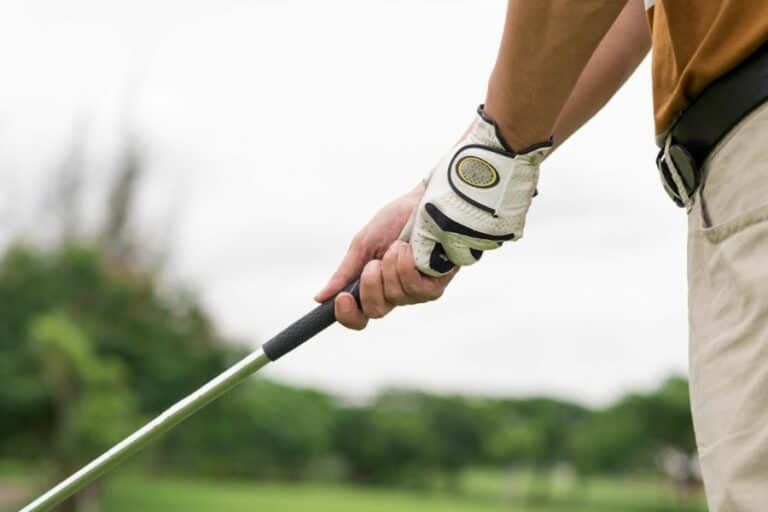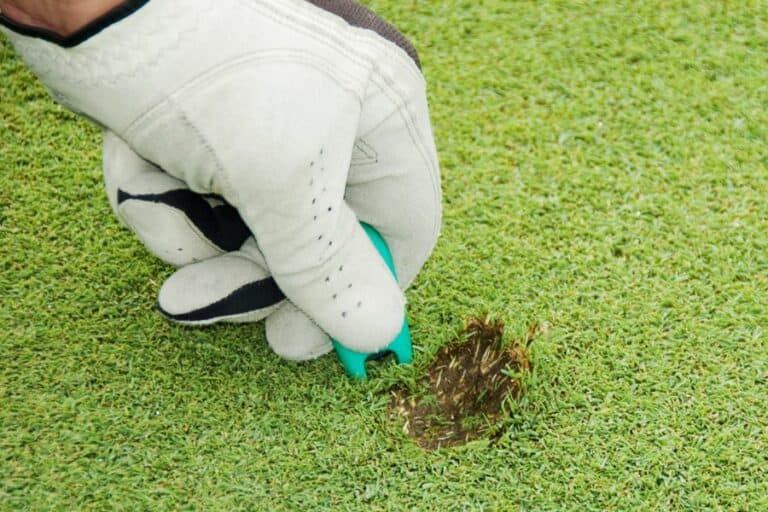Do Golf Balls Get Waterlogged?

Golf balls can become waterlogged if they are hit into a puddle or land in the long grass wet by dew or rain. Find out what happens to the game and how to prevent waterlogging in golf balls.
If you’ve ever played golf in the rain, you know that waterlogging can be a real problem. Not only does it make the ball harder to hit, but it can also affect your score.
Do golf balls get waterlogged?
Many people have asked – whether golf balls get waterlogged or not. The answer to this question is an unfortunate yes.
Though golf balls are designed with a protective coating of dimples all over the exterior, they are still not water-permeable.
Water logging occurs when a golf ball absorbs too much water from the ground, causing it to become heavier and slower. This can happen if the ball is hit into a puddle or if it lands in the long grass that has been wet by dew or rain. The resulting loss of distance can be significant, and it can be the difference between making or missing a shot.
How to tell if your golf ball is waterlogged?
The primary way that waterlogging affects golf balls is by making them heavier. This causes the ball to lose speed and spin, which in turn reduces its carry and results in shorter shots.
Below are some of the key points which show how waterlogging affects golf balls and how to tell if they are waterlogged or not.
1) Bounce
A waterlogged golf ball will have less bounce, and this will cause it to roll more. The ball will also sit up higher on the clubface, which can make it more difficult to control.
2) Spin and Distance
Waterlogged golf balls have less spin, which means they will not travel as far. In addition, the ball will be more likely to slice or hook shots due to the loss of spin.
3) Compression
In terms of compression, waterlogged golf balls are more difficult to compress, which makes it harder to generate speed. As a result, the ball will not travel as far.
4) Durability
Waterlogged golf balls are more likely to crack or break due to the increased weight. So, it is essential to take proper care of them.
5) Feel
Waterlogged golf balls feel softer and have a different feel than dry balls. This can make it difficult to gauge distance and control the ball.
6) Hitting Sound
Waterlogged golf balls make a different sound when hit, which can be off-putting to some players. Because normally, the type of sound golfers hear is due to the vibrations traveling throughout golf ball layers when there is a force upon the golf ball. But when a golf ball is waterlogged, it has water in its layers, and when you hit it hard, the vibrations are different, and thus it creates different sounds.
Waterlogged golf balls also tend to make a dull thud sound when hit, as opposed to the traditional ‘ping’ sound.
The dangers of waterlogging
Waterlogging can be more than just a nuisance; it can also be dangerous. If you hit a waterlogged ball into a group of people, for example, there’s a chance someone could get hurt.
Additionally, waterlogged balls can damage your clubs if they strike them too hard. Therefore, it’s important to be careful when playing in the rain and take measures to reduce the amount of waterlogging in your game.
What can be done to prevent or reduce waterlogging?
There are several things you can do to prevent waterlogging from affecting your game,
- Firstly, avoid hitting puddles whenever possible. If you must hit into one, try to use a pitching wedge or other club with less loft to minimize the amount of water that is absorbed by the ball.
- Secondly, always carry a towel with you and wipe down your golf clubs after they come into contact with water.
- Finally, don’t forget to pack extra golf balls in case any of them become too waterlogged to use.
Moreover, if you need to reduce the amount of waterlogging in your game,
- Make sure to choose a golf ball that has a good reputation for not getting waterlogged.
- Try to avoid playing in the rain if at all possible. If you must play in the rain, use a golf umbrella and keep your clubs covered as much as possible.
- Be sure to wipe down your golf balls after each shot. This will help them stay dry and prevent waterlogging from occurring.
Conclusion
Waterlogging is a common problem for golfers who play in the rain. Not only does it make the ball harder to hit, but it can also lead to erratic shots and damaged clubs. There are a few things you can do to reduce waterlogging, such as choosing a non-waterlogged golf ball and keeping your clubs covered when not in use.
Be sure to wipe down your golf balls after each shot as well so they stay dry and prevent waterlogging from occurring.








